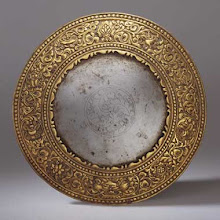We all understand what's meant by "genre." We easily place a new piece of writing into one of a number of genres--mystery, romance, horror, sci-fi. Well, maybe it's not always so easy, but we certainly try; even when it means concocting blended genres, such as "techno-erotica." What we forget in our hurried attempts to categorize writing is that genre is primarily descriptive. When we think of a writing genre, we're not simply picturing a sorting-bucket full of like pieces; we're picturing all the elements--the characters, plot, setting--that describe that piece of writing. When we forget about the descriptive function of genre, we forget genre has an actual function beyond categorizing. Genre reminds us, the audiences and readers, about what is important in the piece.
In my recommendation of Michael Crummey's Galore (over at Advent Book blog), I describe the novel as a comedy of manners. Admittedly, the genre "comedy of manners" is taken from theatre, but it is still wonderfully descriptive, and exceedingly apt for Galore, which is a comedic--and somewhat tragic--commentary on the social relations and mores of historical Newfoundland. The novel has all the elements of a comedy of manners: it satirizes manners and affectations, questions whether certain characters meet social expectations, and concerns itself with an illicit love affair or two. But who would categorize Galore as a comedy of manners? Would you look for it in the "comedy of manners" section of Chapters? Not likely; because genres are defined as categories to pigeon hole writings, and so need to be accommodatingly broad. But doesn't Galore read as more than a historical novel? Doesn't "comedy of manners" evoke the awkward social atmosphere, strained relations, and personal foibles narrated in Galore?
Genre isn't always the most discrete. There is a lot of ambiguity found in attempts to place a piece of writing into a genre. But that shouldn't discourage our use of genre as a descriptive aid. Instead, we should embrace the ability of genres, especially those considered outdated or archaic, to evocatively set out the elements of narrative--character, plot, and setting. Maybe it's not that we as readers have forgotten the descriptive quality of genres, but more that we've become content to re-use or re-purpose the same tried-and-true generic categories. I cringe to think what someone who expected a typical historical novel might think after reading a few pages of Galore. It might be in fact a historical novel, but at its heart, Galore is a comedy of manners, a tale of social people, and all that that entails.
*****
Monday, December 14, 2009
Subscribe to:
Post Comments (Atom)

No comments:
Post a Comment